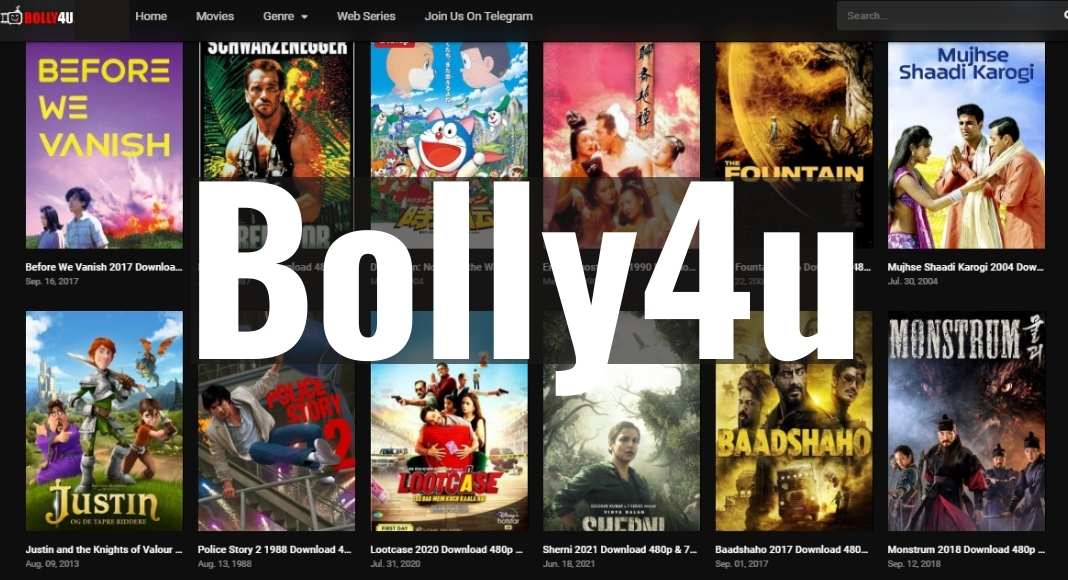In an era where instant gratification reigns supreme, is the temptation of free, readily available movies proving too strong for the modern consumer? The surge in websites offering pirated films is not just a nuisance; it's a full-blown crisis threatening the foundations of the global film industry.
The digital revolution has ushered in an unprecedented era of convenience. We can now access virtually any piece of content with a mere handful of clicks. However, this ease of access has also opened the floodgates for the widespread dissemination of pirated movies a practice that poses an existential threat to the film industry. Websites such as Bolly4u, along with countless others operating in the shadows of the internet, offer users the opportunity to download or stream movies without charge, effectively circumventing traditional distribution channels and, in turn, crippling the revenue streams of filmmakers, actors, and the vast network of professionals involved in film production.
| Category | Information |
|---|---|
| Official Website | Motion Picture Association |
| Industry Impact | Financial Losses, Reduced Creativity, Damage to Legitimate Services |
| Key Players | Filmmakers, Actors, Streaming Services, Piracy Website Operators |
| Legal Aspects | Copyright Law Violations, International Law Enforcement |
| Consumer Motivations | Cost Savings, Convenience, Early Access |
| Countermeasures | Law Enforcement, Legal Reforms, Education, Innovative Distribution |
| Technical Factors | High-Speed Internet, Large Storage Devices, Anonymity Tools |
| Geographical Factors | Countries with Lax Copyright Laws |
| Content Types | Bollywood, Tollywood, Hollywood movies, Dual-Audio Content |
| Resolution Options | 300MB, 480p, 720p, 1080p, 4K |
The ramifications of movie piracy are extensive and complex, touching upon numerous aspects of the filmmaking world. The most immediate and obvious consequence is the significant financial hit absorbed by the industry. When films are illegally copied and distributed via unauthorized channels, the revenue generated from traditional avenues such as theatrical releases, DVD sales, and subscriptions to legitimate streaming platforms experiences a sharp decline. This drop in revenue affects not only the major Hollywood studios but also the smaller, independent filmmakers who depend on these income streams to fund their future projects and sustain their operations.
- Discover Astrella Onlyfans The Ultimate Guide To Her Success
- Unveiling Sam Frank Porn The Truth Risks Amp What You Can Do
The impact of piracy extends beyond mere financial considerations, seeping into the very creative fabric of the industry. Piracy has the potential to stifle creativity and innovation at all levels of filmmaking. When the financial incentives for producing high-quality, original films are eroded by widespread illegal distribution, studios and production companies become increasingly reluctant to take risks on new and unproven content. This aversion to risk-taking can lead to a noticeable decline in the overall quality and diversity of films available to the public, as studios gravitate towards safer, more commercially viable projects that are less likely to push boundaries or challenge conventional storytelling. The result is a homogenization of cinematic content, where originality and artistic experimentation are sacrificed in favor of predictable and formulaic productions.
The global nature of the internet further complicates the already complex issue of movie piracy. Websites that offer pirated content often operate from countries with lenient or non-existent copyright laws, making it exceedingly difficult to shut them down or hold them accountable for their actions. The anonymity afforded by the internet also empowers individuals to download and share pirated movies with little fear of immediate legal repercussions. This sense of impunity, combined with the ease and convenience of accessing illegal content, has created a culture of widespread copyright infringement that is difficult to combat.
The proliferation of high-speed internet access and the increasing availability of inexpensive, high-capacity storage devices have also contributed significantly to the growth of movie piracy. With faster download speeds, users can quickly and easily acquire large movie files, while affordable storage options allow them to amass vast libraries of pirated content without incurring significant costs. This combination of factors has created a perfect storm, making it easier than ever for individuals to engage in and perpetuate movie piracy.
- Billie Eilish Nude Truth Separating Fact From Fiction Unveiled
- Breaking Down What You Need To Know About The Jameliz Leak Scandal
Moreover, the availability of pirated content directly undermines the efforts of legitimate streaming services, which invest substantial sums of money in acquiring the rights to stream movies legally. Platforms like Netflix, Amazon Prime Video, Disney+, Zee5, and countless others spend billions of dollars each year to secure licensing agreements and offer consumers a convenient and legal way to access a wide range of films. However, the existence of free, readily available pirated content devalues these services, as users can often find the same movies and TV shows on illegal websites without paying a subscription fee. This creates an uneven playing field, where legitimate businesses struggle to compete with those operating outside the bounds of the law.
The motivations behind movie piracy are multifaceted and often deeply personal. For some individuals, the primary driver is financial constraint. They may simply be unable to afford the cost of watching movies through legitimate channels, such as purchasing tickets to the cinema or subscribing to streaming services. Others may view piracy as a victimless crime, rationalizing that the major studios and production companies are wealthy enough to absorb the losses without suffering significant harm. Still others may be drawn to the sheer convenience of accessing movies for free, or the novelty of obtaining content before its official release date.
Effectively combating movie piracy requires a comprehensive, multi-pronged approach that addresses the problem from multiple angles. Law enforcement agencies must take a more proactive stance in identifying, investigating, and shutting down illegal websites that distribute pirated content. This includes pursuing legal action against the individuals involved in operating these sites and holding them accountable for their copyright infringements. Copyright laws must be updated and strengthened to reflect the realities of the digital age, providing stronger legal protections for copyright holders and imposing harsher penalties on those who engage in piracy.
Educational campaigns also play a crucial role in raising public awareness about the harms of piracy and encouraging consumers to support the film industry by watching movies legally. These campaigns should emphasize the ethical and economic consequences of piracy, highlighting the negative impact it has on filmmakers, actors, and the overall quality of cinematic content. By educating consumers about the value of copyright and the importance of supporting legitimate channels, we can help to shift public attitudes and reduce the demand for pirated content.
In addition to legal and enforcement efforts, the film industry itself has a significant role to play in combating piracy. This includes developing innovative distribution models that make movies more accessible and affordable to consumers. Subscription-based streaming services have proven to be a successful model for providing convenient and affordable access to a vast library of films and TV shows. By expanding these types of offerings and exploring new ways to reach consumers, the industry can reduce the appeal of piracy and encourage more people to watch movies legally.
The industry should also focus on providing a superior viewing experience through high-quality streaming services and premium content. This includes offering movies in high definition (HD) and ultra-high definition (UHD) formats, with immersive audio and visual features. By investing in technology and content that enhances the viewing experience, the industry can differentiate itself from illegal sources and provide consumers with a compelling reason to choose legitimate channels.
The persistent existence and popularity of websites like Bolly4u serve as a stark reminder of the magnitude and complexity of the movie piracy problem. These platforms, which operate outside the boundaries of legal frameworks, offer a vast and ever-expanding collection of content, encompassing Bollywood, Tollywood, and Hollywood movies, often with Hindi dubbing to cater to a broader audience. The ease with which users can access movies in various formats, ranging from small 300MB downloads to high-resolution 480p, 720p, and even 1080p and 4K versions, has undoubtedly contributed to their widespread appeal.
These websites often thrive due to the lax enforcement of copyright laws in certain regions around the world. This lack of effective oversight allows them to operate with relative impunity, offering content that should rightfully be enjoyed through legal channels such as Zee5, Hotstar, and other legitimate streaming providers. While the convenience and accessibility of these sites may be tempting to some, it is crucial to recognize the significant negative impact they have on the film industry. The consequences of movie piracy extend far beyond mere financial losses, affecting filmmakers, actors, and countless other personnel who contribute to the creation of cinematic content.
The impact of piracy extends far beyond mere financial considerations. It also has a detrimental effect on the overall quality of cinematic content. When revenue streams are disrupted and filmmakers face increased financial uncertainty, they become less likely to invest in ambitious, creative projects. This can lead to a noticeable shift in the types of movies that are made, with studios and production companies gravitating towards safer, more commercially viable options instead of taking risks on innovative, original content. The result is a homogenization of the film industry, where artistic experimentation and originality are sacrificed in favor of predictable and formulaic productions.
The inherently global nature of the internet further complicates the already challenging fight against piracy. Websites that offer pirated content can be hosted in countries with weak or non-existent copyright laws, making it incredibly difficult to track down and prosecute the individuals involved in operating these sites. The anonymity afforded by the internet also provides a shield for pirates, making it difficult to identify and hold them accountable for their actions. The ease with which users can download and share large files has also contributed to the widespread dissemination of pirated content, making it a pervasive and persistent problem.
Legitimate streaming services, such as Netflix, Amazon Prime Video, and Disney+, invest heavily in securing the rights to stream content legally. These companies spend billions of dollars each year to acquire licensing agreements and offer consumers a convenient and legal way to access a vast library of films and TV shows. However, piracy effectively devalues these services, creating an unfair competitive landscape. The convenience offered by illegal sites should not be mistaken for harmless entertainment. They actively harm the film industry and the countless individuals who work tirelessly to create the movies we enjoy.
The motivations behind movie piracy are complex and varied. Some individuals may lack the financial resources to watch movies through legal channels, while others may view it as a victimless crime, rationalizing that the studios and production companies are wealthy enough to absorb the losses. Still others may be drawn to the sheer convenience of accessing free content, or the thrill of obtaining movies before their official release date.
Fighting piracy effectively requires a multifaceted approach that addresses the problem from multiple angles. Law enforcement agencies must take decisive action against illegal websites, actively pursuing and shutting down those involved in the distribution of pirated content. Copyright laws need to be updated and rigorously enforced in the digital age, providing stronger legal protections for copyright holders and imposing meaningful penalties on those who engage in piracy.
Educational campaigns are also essential for raising public awareness about the harms of piracy and encouraging consumers to support legal viewing options. These campaigns should emphasize the ethical and economic consequences of piracy, highlighting the negative impact it has on filmmakers, actors, and the overall quality of cinematic content.
The film industry itself can also play a proactive role in combating piracy by creating innovative distribution models that make movies more accessible and affordable. This includes exploring new subscription-based streaming services, offering discounts for early access to movies, and partnering with retailers to provide bundled entertainment packages. They should focus on providing a superior viewing experience through high-quality streaming services and premium content.
The continued popularity of websites like Filmywap, which are known for providing HD quality movies, underscores the significant demand for accessible entertainment. However, the very existence of these platforms highlights the urgent need to protect the film industry's revenue streams and ensure the continued production of high-quality cinematic content.
The proliferation of these websites necessitates a proactive and comprehensive approach to address the issue of movie piracy. This includes educating the public about the legal and ethical implications of accessing pirated content, emphasizing the importance of supporting legitimate channels, and promoting the value of copyright. The film industry and its various stakeholders need to collaborate closely with law enforcement agencies and policymakers to develop and implement effective solutions that protect their intellectual property rights while also meeting the consumer's demand for convenient and affordable entertainment options.
The landscape of online entertainment is constantly evolving, with new platforms and technologies emerging on a regular basis. This dynamic environment presents the film industry with ongoing challenges in safeguarding its creative output and combating piracy. To stay ahead of the curve, the industry must adopt a flexible and adaptable strategy that can respond quickly to the changing landscape. Efforts to combat piracy must go hand in hand with efforts to provide a viable alternative for consumers, such as expanding legal streaming options, improving the user experience, and offering more personalized content recommendations.
The future of the film industry hinges on its ability to protect its revenue streams while simultaneously offering viewers a compelling and attractive reason to choose legal alternatives over pirated content. By effectively addressing both the supply and demand sides of the piracy equation, the industry can ensure its long-term sustainability and continue to bring high-quality, creative content to audiences around the world.
One key aspect of this evolving landscape is the increasing prevalence of dual-audio content, as evidenced by the growing number of Bollywood and Hollywood movies that are now available with Hindi dubbing. The ability to choose between the original audio and dubbed versions significantly expands the reach of films, catering to a more diverse audience and breaking down language barriers. This trend presents both opportunities and challenges for the film industry. While it can undoubtedly attract more viewers and increase revenue potential, it also necessitates careful management of copyright and distribution rights to ensure that content is properly licensed and distributed in different regions.
In summary, the film industry must remain vigilant, proactive, and adaptable in its ongoing battle against piracy. By combining robust legal strategies with innovative distribution models, and by continuously educating the public about the economic and ethical consequences of piracy, the industry can effectively protect its creative output and ensure its continued success in the ever-changing digital age. The focus must be on creating a sustainable ecosystem where creators are fairly compensated for their work, and consumers have access to a wide range of affordable and legal entertainment options.
- Is Tommy Lee Jones Health Failing Truth Updates Revealed
- Vegamovies Archive Is It The Best Streaming Choice For You


